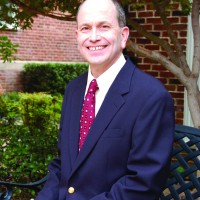Middle-age fitness has a greater impact on preventing chronic disease than overall survival, according to Cooper Institute and UT Southwestern Medical Center researchers.
In a study just published online by the Archives of Internal Medicine, researchers looked at data for more than 73,000 people in the Cooper Center Longitudinal Study database. They also looked at Medicare records for more than 18,600 of those from up to 46 years later.
Participants who were the most fit age 30 through 59 had fewer chronic conditions after age 65. Those conditions included heart disease, diabetes, chronic kidney disease, Alzheimer’s disease, and certain cancers. Among men with the lowest fifth of fitness scores, the annual rate of chronic-disease prevalence was 28 percent, compared with 16 percent for the fittest one-fifth. The corresponding numbers for women were 20 percent, compared with 11 percent. The effect continued until the end of life, with fitter individuals having fewer chronic conditions in the last five years of life.
The study adds to the work of Stanford professor James Fries, M.D., who coined the term “compression of morbidity.” He believed the same forces that lengthened life expectancy would also decrease—or compress—the number of years of disease and disability prior to death. In other words, the ideal healthy life would be one spent without impaired functioning right up until the moment of death.

Benjamin Willis, M.D., of The Cooper Institute, was the study’s first author. He said many authors have used compression of morbidity as a theoretical concept, but have not been able to show supporting research. He said Cooper’s longitudinal database allowed the researchers to illustrate the theory based on fitness level.
Co-authors were Laura DeFina, M.D., and David Leonard of The Cooper Institute; and Jarret Berry, M.D., and Ang Gao of UT Southwestern.
Willis said the researchers took a broad approach to fitness of chronic disease in this study. He said the researchers are examining the database to determine the effect of fitness on specific chronic conditions.
Willis called the research collaboration between The Cooper Institute and UT Southwestern “a very fruitful relationship.” He said the effort combines “their brainpower with our data.”
The two institutions are collaborating on what they call BioBank that contains DNA and blood samples of more than 10,000 volunteers to study how genes contribute to disease risk. BioBank’s goal is to improve health and prevent the development of chronic diseases. Cooper Institute and UT Southwestern researchers currently are studying how genes interact with environmental factors, especially fitness and cholesterol metabolism
The Cooper Center Longitudinal Study (CLSS) database contains more than 250,000 records from almost 100,000 individuals representing more than 1,800,000 person-years of observation. The CCLS is one of the most highly referenced databases containing more than 3,000 variables and considered the world’s foremost repository of information on fitness. The data collection began with founder Dr. Kenneth Cooper’s first patient in December 1970.
Steve Jacob is editor of D Healthcare Daily and author of the new book Health Care in 2020: Where Uncertain Reform, Bad Habits, Too Few Doctors and Skyrocketing Costs Are Taking Us. He can be reached at [email protected].





